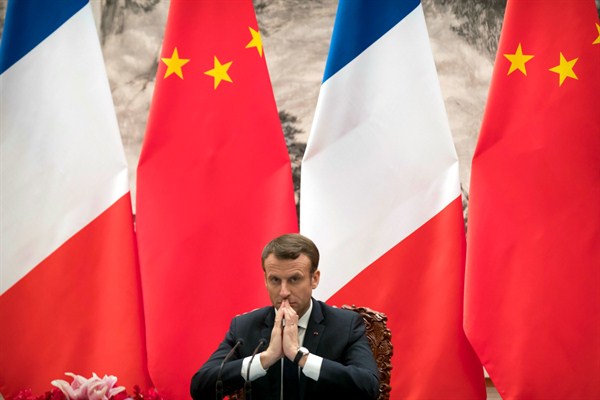From the United States to Australia, countries are tightening restrictions on investment in strategic sectors like energy and defense, with a wary eye toward China. There are mounting concerns globally about the pitfalls associated with Chinese investment and whether it is a Trojan horse for Beijing to gain access to critical technologies, data and infrastructure that it can use for its own military ends. Europe is not immune to these concerns, and late last year, the European Union passed an investment screening mechanism of its own that specifically targeted China. Yet the EU will still have to do more to tackle forced technology transfers, both lawful and illicit, and other issues. Fortunately, it can look to one of its own members for a scalable solution: France, which has adopted a smart approach to foreign investment, adding scrutiny while staying open for business.
Chinese investments across Europe are substantial, totaling $33.7 billion in 2017. Of China’s top 20 foreign investment destinations in 2017, five were EU countries. While this investment has helped to offset other economic woes on the continent, it has come with legitimate concerns. Even though the EU collectively represents the world’s largest economy, it has received little reciprocity from Beijing. EU companies entering the Chinese market are often forced to share their intellectual property and are restricted to investments in limited sectors, while Chinese companies enter the European market with no similar restrictions.
Last February, the finance ministers of France, Germany and the United Kingdom urged the EU’s trade commissioner, Cecilia Malmstrom, to address how Europe is losing its strategic and technological advantages to China. Their worries were well founded. In the past two years, companies linked to the Chinese Communist Party attempted to buy the only French shipyard large enough to build warships, invested in a British nuclear project that could yield U.S. reactor secrets, and acquired Germany’s largest industrial robotics firm.

